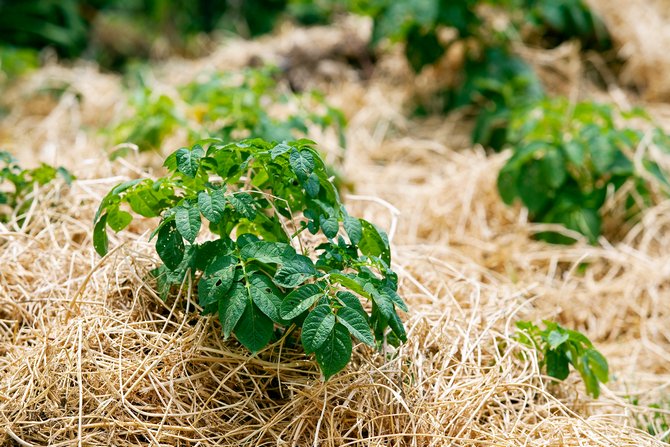
Experienced gardeners and gardeners know effective methods to prevent weed growth and protect plants from the external environment. Almost every summer resident has already been convinced of the enormous benefits of mulching..
If you observe nature, you can see that trees shed their foliage and form a protective layer for the root system in winter and return nutrients to the soil from rotted fallen leaves. Nature was the first to come up with ways to mulch the soil. The main thing is to choose the right materials. If you follow the basic rules of mulching, you can not only enrich the soil and maintain plant health, but also increase the yield..
When and how to mulch the soil
Do not mulch in early spring. The soil should warm up well. Cold, damp soil under the mulch will cause rot and damage thermophilic plants. Mulch will restrict the access of heat from the ground to the crops. The optimal time for mulching the soil is early summer or late May..
The benefit of mulching is to maintain a favorable temperature for the plant around the roots and the necessary moisture in the soil. Mulch prevents the soil from drying out, prevents weeds, reduces the frequency of watering.
Air exchange is important for the roots and stems of plants. For this purpose, a small gap must be left between crops and mulch for air circulation..

Before laying mulch, the soil must be loosened and moistened, it should not be dense. You can loosen the beds immediately after rain, then additional moisture is not required. The optimal mulching layer is about eight centimeters.
A lot of benefits for soil and plants can be reaped by using organic mulch. Wood sawdust and shavings, tree bark and nutshells, needles and hay – all this will attract earthworms and other beneficial insects to the site. With the help of worms, the microflora of the soil will improve, and leaving such mulch for the winter, it will turn into humus with the help of bacteria.
Disadvantages of mulching
Under certain natural conditions, the mulch layer undergoes rotting – these are clean clay soils, abundant and prolonged rains. Too thick mulch contributes to the formation of rot.
All the advantages and benefits of mulching will appear no earlier than two years later..
Mulching in areas where there may be unexpected frosts can cause irreversible damage to plants. After all, the heat remains in the soil, under the mulch. And the upper part of the plants remains unprotected.

Organic mulch is not only a home for worms and insects, but also attracts various rodents and slugs. The abundance of insects attracts many birds, which can harm the growth and development of plants. Mice and moles will only harm the future harvest.
Despite some negative aspects, mulching makes it easier for gardeners and summer residents. The need for irrigation and weeding decreases, the soil microflora improves. This agricultural practice is considered one of the most effective in agriculture..
